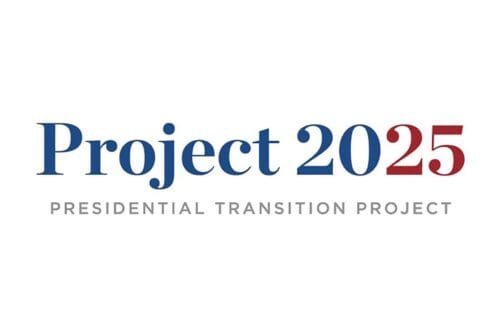Handling Classified Information: The Double Standards

Introduction to the Incident
The handling of classified information has become a focal point of contention, particularly when considering the actions of high-ranking political figures. A recent incident involving Secretary of State Marco Rubio, Secretary of Defense Pete Hegseth, National Security Adviser Mike Waltz, White House Chief of Staff Stephen Miller and Vice President JD Vance, has raised questions regarding the appropriateness of their communication methods regarding sensitive national security matters. Reports indicate that these officials allegedly disseminated classified attack plans pertaining to Yemen via the messaging platform Signal, a channel not typically associated with such critical discussions.
This choice of communication raises significant concerns about the safeguarding of sensitive information. Signal, while encrypted, is not viewed as a formal or secure channel for official government discourse, particularly concerning classified operations. The implications of sharing classified information in this manner resonate deeply, particularly in light of the ongoing calls for heightened accountability from public officials regarding the management of sensitive data. This incident stands as a stark reminder of the double standards often observed in how classified information is handled by different political figures and administrations.
Historical Context of Classified Information Handling
The management of classified information within U.S. politics has evolved significantly over the decades, shaped by legal frameworks, political dynamics, and societal expectations. The classification system, designed to safeguard national security, is grounded in principles that date back to World War II, with the formalization of security classifications in subsequent decades. The rise of technology and the digital age has prompted ongoing challenges and debates regarding the ethical considerations and legal ramifications of handling sensitive information.
Prominent figures such as Joe Biden and Hillary Clinton have faced scrutiny for their handling of classified documents, reflecting a complex interplay of legal standards and political perceptions. Biden’s staff mistakenly packing away some classified material along with his personal files at the end of his tenure as Vice President raised questions about the preservation of classified information. Similarly, Clinton’s email server controversy resulted in significant public and political backlash, with critics arguing that both instances endangered national security. These cases highlight the expectations placed upon policymakers, who are obligated to adhere to strict guidelines surrounding classified material.
On the other hand, the handling of classified information by certain GOP figures of the Yemen attack plans illustrates contrasting standards and responses. Calls for accountability and transparency often vary depending on the political affiliations of those involved. This discrepancy in responses reflects a broader trend of double standards within political discourse, where partisan biases can influence the perception of accountability. Rhetoric surrounding classified information frequently shifts, revealing how varying political motivations shape the narrative. As both sides of the aisle have mobilized around issues of classified material, the historical context underscores the ongoing evolution of standards and expectations, necessitating continuous dialogue about accountability and ethical governance.
Political Reactions and Public Perception
The handling of classified information has consistently sparked political reactions that differ significantly based on party affiliation. In the recent controversy surrounding the release of classified attack plans, GOP figures such as Speaker of the House Mike Johnson largely downplayed the incident. His remarks suggested that the information leak was not particularly alarming, employing a narrative that aimed to normalize the situation. This stance starkly contrasts the fervent condemnation faced by Democratic figures over similar breaches of protocol. Such discrepancies raise questions about the extent of partisan hypocrisy in the discourse surrounding national security.
The juxtaposition in rhetoric showcases a broader trend in political reactions, where actions by members of one party often elicit severe scrutiny, while analogous actions taken by those from the opposing party may be glossed over or rationalized. For example, when classified information was mishandled by Democratic leaders in the past, the response from the GOP was typically aggressive, filled with calls for accountability and heightened security measures. Yet, current reactions from some Republican leaders suggest a willingness to dismiss equivalent offenses when committed by their peers.
This selective outrage reflects a deeply divided public perception, where opinions on national security are often aligned with partisan loyalties. Many citizens notice this inconsistency, leading to a growing sense of frustration over the apparent double standards in political accountability. This phenomenon not only impacts public trust in political institutions but also exacerbates the existing divides within the electorate. As the nation grapples with these grievances, the rhetoric surrounding classified information remains a litmus test for broader political integrity, serving to either bridge divides or reinforce them further.
The Implications of Partisan Double Standards
In examining the handling of classified information within the context of political affiliation, it becomes evident that a concerning pattern of double standards exists. We have observed instances where individuals from varying political backgrounds are subjected to disparate levels of scrutiny and accountability based solely on their partisan ties. This inconsistency raises critical questions about the principles of fairness and justice which ideally govern our legal system.
The implications of these findings extend far beyond the political arena; they tap into fundamental concerns regarding national security. If the enforcement of laws surrounding classified information is applied selectively, it not only undermines public trust in governance but also poses substantial risks to the integrity of sensitive state affairs. When individuals perceive that their political allegiance shapes their accountability, it could encourage a culture of impunity, jeopardizing the foundations of responsible conduct among public officials.
Moreover, as we continue to navigate an increasingly polarized political landscape, the repercussions of these partisan double standards warrant serious reflection. The pursuit of accountability should transcend party lines, adhering to consistent legal standards that are impartial and equitable. Without a unified approach to the handling of classified information, the potential for misuse and mismanagement grows, ultimately affecting the safety and security of the nation.
Ultimately, fostering a bipartisan agreement on the treatment of classified information is essential. It is imperative for citizens and policymakers alike to advocate for a fair and consistent framework that prioritizes national interests over political expediency. The need for transparency, accountability, and integrity in the handling of sensitive information remains paramount, emphasizing the urgent requirement for reforms that bridge the current divides.




